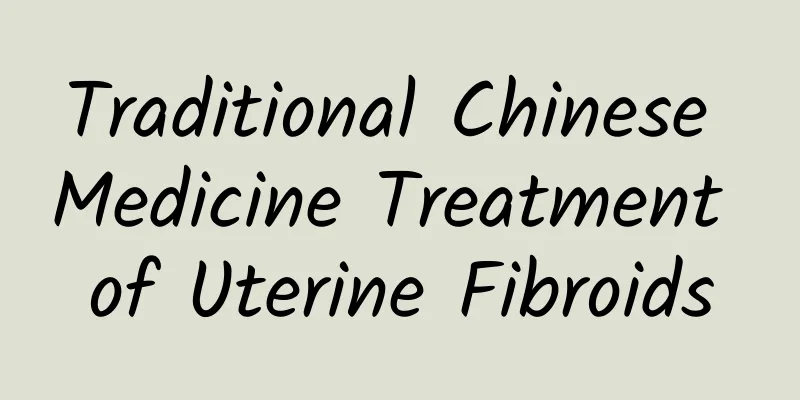What are the symptoms of uterine fibroids? What are the main symptoms of larger uterine fibroids?

|
Uterine fibroids are a common female disease characterized by abnormal growth of muscle tissue in the uterus, forming a mass. Most uterine fibroids are benign, but in some cases they can cause a range of symptoms and problems. This article will describe the symptoms of uterine fibroids, focusing on the main symptoms of larger uterine fibroids. Let’s first look at the symptoms of uterine fibroids. 1. Abnormal menstruation: Uterine fibroids may cause increased menstrual flow, prolonged menstrual periods, and even irregular menstruation. Some women may even experience symptoms of menstrual blood clots. 2. Abdominal pain and pressure: Smaller uterine fibroids may not cause pain, but when the fibroids grow larger or increase in number, women may feel abnormal pressure or pain in the lower abdomen. 3. Difficulty urinating: When uterine fibroids grow larger, they may compress the bladder, leading to symptoms such as frequent urination, urgency, and pain when urinating. 4. Constipation or diarrhea: The growth of uterine fibroids may also put pressure on the intestines, causing symptoms of constipation or diarrhea. 5. Painful sexual intercourse: Some women may feel pain or bleeding during sexual intercourse, which may also be one of the symptoms of uterine fibroids. Next, let’s discuss the main symptoms of larger uterine fibroids in detail. Larger uterine fibroids tend to cause more noticeable symptoms, such as the following: 1. Abdominal lumps: When uterine fibroids grow to a certain size, one or more lumps can be felt in the abdomen, which is the most obvious symptom. The lumps are usually hard and of varying sizes. 2. Dysmenorrhea: Larger uterine fibroids may also cause dysmenorrhea. Women may feel abdominal pain or discomfort in the lower abdomen during menstruation. 3. Anemia: Some women may develop anemia due to increased menstrual flow caused by uterine fibroids. Anemia can cause symptoms such as fatigue, shortness of breath, and dizziness. Uterine fibroids are a common gynecological disease with symptoms including abnormal menstruation, abdominal pain, pressure, dysuria, constipation, diarrhea, and painful sex. Larger uterine fibroids may cause more obvious symptoms, such as abdominal lumps, dysmenorrhea, and anemia. If you suspect you may have uterine fibroids, it is recommended that you consult a doctor for diagnosis and treatment in a timely manner so that you can recover. |
Recommend
Boxing + riding a bicycle, Xu Weien has a hot body
Xu Weien, who switched from being a model to a si...
Women should be alert to the dangers of endometrial tuberculosis
Endometrial tuberculosis is a common disease amon...
Does untreated hyperprolactinemia affect the fetus?
Many people may think that if hyperprolactinemia ...
Is it normal for the color of the menstrual period to be bright red? If it is stable, it is normal
If the menstrual blood is bright red, it is norma...
Is it normal for the endometrium to be 0.8 after the menstrual period?
Is it normal for the endometrium to be 0.8 after ...
Causes of irregular menstruation in women after abortion
Some women may experience irregular menstruation ...
Can I do yoga when I have dysmenorrhea?
Can I do yoga when I have dysmenorrhea? Dysmenorr...
Why do I have irregular menstruation after an abortion?
Many women will experience irregular menstruation...
Revelation from Olympic medals! Sarcopenia cannot be ignored
Weightlifting is one of the few sports in Taiwan ...
What is the cause of ovulation bleeding after uterine curettage?
Ovulation bleeding after uterine curettage may be...
Can I still get pregnant after three miscarriages?
Can I still get pregnant after three miscarriages...
Ladies, do you know the classification of vulvar leukoplakia?
Vulvar leukoplakia is a common disease in women, ...
Experts reveal: 5 common causes of ovulation bleeding, how many do you know?
Xiaoli is 28 years old, married recently, and is ...
Preventing adnexitis starts with enhancing your own immunity
Prevention of adnexitis is a topic of great conce...
How to cure cervical precancerous lesions
Cervical cancer is a very common gynecological di...









